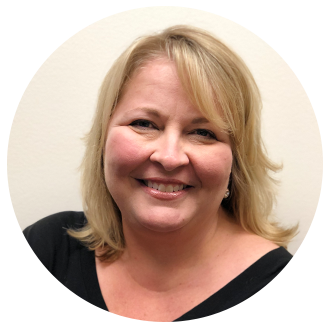Although the workplace is not necessarily the forum for solving all the societal challenges we face, it has the potential to become a space where people can express themselves, be heard, and seek understanding in the pursuit of achieving the organization’s larger mission. However, that requires a willingness to lean into the discomfort of frank conversations in pursuit of productive, meaningful outcomes.
A couple of my early career experiences with DE&I initiatives gone awry created trepidation for me to fully commit to this point of view.
I was just a few years into my career when the company I worked for at the time established a “diversity database” in Lotus Notes (it was a long time ago, pre-Outlook and way before Teams). The executive sponsor envisioned the database (akin to a modern-day comments thread on social media) to be a place for employees to share their experiences and points of view on diversity issues in the workplace, with rich discussion, healthy debate, and mutual appreciation of everyone’s unique truths.
Instead, it was a hot mess.
From the first post, the spirit of the “discussion” was neither rich nor healthy—it was contentious and divisive. Active users quickly found sparring partners with opposing views, all of them eager to prove themselves right and others wrong. Some posts even included footnotes and citations. Day after day, users pummeled each other from behind their keyboards with everything from harsh words to Bible verses. Some would craft lengthy missives on their off hours to post the next morning.
For those not actively participating, following the database drama became part of the daily routine. It dominated conversations in team meetings, in the lunchroom, and behind cubicle walls (“Did you see what he wrote?” “Yeah, and did you see what SHE wrote back?”). Leaders lamented the impact on productivity and relationships, first to each other, then up the management chain. After a few months, the executive sponsor relented, and she pulled the plug on the diversity database.
Time and experience have given me perspective on what went wrong.
The goals the executive sponsor had for the database were noble and certainly worth pursuing. However, the company culture was not ready for such an initiative. Employees were eager to express themselves, but leaders were ill-prepared to manage the fallout and unsure if they should even attempt to do so. Expressing ideas in a written format, without context, training, or support, was not putting the employees in the best position to create positive change. The result was the epic failure of a bold idea.
A few years later at this same organization, another diversity initiative was introduced: a mandatory one-day training session for all employees that was clearly designed to avoid any of the controversy of the previous diversity database debacle. The result was what I can best describe as a cringey cupcakes-and-kumbaya experience. Facilitators (including me) were frustrated by the lack of substance in the content; learners as a whole were skeptical, guarded, and relieved not to be challenged. Once again, leaders were unsure of their roles beyond checking a box to confirm that everyone on their team attended the training. The effort met a corporate goal but lost an opportunity to truly move the organization forward with reflection and action.
A lot of time has passed since those two experiences. In the spirit of learning from mistakes, they were at the forefront of my mind as Dion Leadership worked to develop a fresh, sustainable point of view on DE&I training. Our current emphasis is on inclusion, a term that was not used back in the day.
Inclusion is about taking the steps necessary to actively involve every employee’s ideas, knowledge, perspectives, approaches, and styles to maximize individual business success.
For that to happen, all employees need to feel valued, respected, and supported. Emphasizing inclusion has given me the clarity I needed to shape our program.
And that’s the focus of Inclusion in the Workplace, our flagship course on inclusive leadership.
Inclusive leaders ensure the right conditions are in place for each employee to participate fully, achieve their potential, and perform at their best. To do that, they need to create an environment of unconditional positive regard and trust so that employees have each other’s best interest at heart. When that happens, differences truly become discussable.
Such high-minded goals may seem daunting, but they speak to the ideals of our clients looking to develop a truly meaningful DE&I program. Our learning focuses on the skills and behaviors leaders demonstrate every day that move them and their teams toward that state. These include:
- Self-awareness and humility, including an understanding of personal biases
- Courage and curiosity, including a willingness to learn and step outside of personal comfort zones
- Commitment to developing others, including giving feedback, expecting accountability, providing opportunities, and empowering individuals
- Trust and relationship-building, including communication, fairness, collaboration, encouragement, and support
These skills and behaviors extend to aspects of leadership beyond inclusion, of course. But that’s the point: inclusive leadership begins with great leadership skills and management behaviors that create a healthy work environment. When strong leadership skills are developed and supported, leaders can collectively create a culture where differences are indeed discussable.
Please reach out so we can help you figure out the best way for you to provide inclusive leadership development and coaching to your organization.


